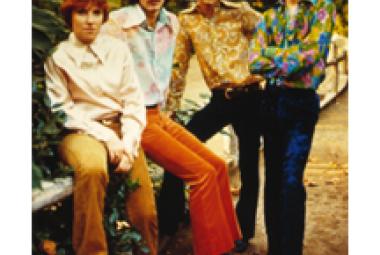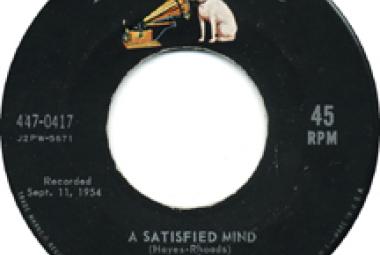Pete Seeger (May 3, 1919 – January 27, 2014) was an American folk singer and activist. He was a member of the Weavers, most known for their recording of Lead Belly’s “Goodnight, Irene”, which topped the charts for 13 weeks in 1950. In the 1960s, he re-emerged on the public scene as a prominent singer of protest music in support of international disarmament, civil rights, counterculture, and environmental causes. A prolific songwriter, his best-known songs include “Where Have All the Flowers Gone?” (with Joe Hickerson), “If I Had a Hammer (The Hammer Song)” (with Lee Hays of the Weavers), and “Turn! Turn! Turn!” (lyrics adapted from Ecclesiastes), which have been recorded by many artists both in and outside the folk revival movement and are sung throughout the world. Seeger was one of the folksingers most responsible for popularizing the spiritual “We Shall Overcome” (also recorded by Joan Baez and many other singer-activists) that became the acknowledged anthem of the 1960s American Civil Rights Movement. (More from Wikipedia)
In a radio interview on New York radio station WBAI in June 1962 (which, if I am remembering this right, is included in part on Great White Wonder – or at least, one just like it is), legendary folksinger Pete Seeger described Bob Dylan as “the most prolific songwriter on the scene” and then asked Dylan about his songwriting; he replied in part: “I might go for two weeks without writing these songs. I write a lot of stuff. In fact, I wrote five songs last night [chuckling can be heard in the background], but I gave all the papers away in some place called the Bitter End” – one of the most famous music clubs in the City I might add.
(June 2013/2)
* * *
In 1983, Holly Near teamed up with Ronnie Gilbert, formerly with the legendary folk group the Weavers, for the first of several albums. The duo also collaborated with another former Weaver, Pete Seeger plus Arlo Guthrie in a group called HARP, named after the initials in their first names.
(January 2014)
* * *
Joan Baez was born in Staten Island, New York and is the daughter of a scientist father. The Baez family converted to Quakerism when she was a child, and Joan’s political bent basically continued the pacifism tradition of the Christian denomination. Joan saw a concert by Pete Seeger (who recently passed away) when she was 13, and she was strongly moved by his music.
(February 2014)
* * *
John A. Lomax and Alan Lomax promoted Lead Belly as an authentic American folksinger, and two of his songs rank high in the folk pantheon: “Goodnight Irene” was a big hit in 1950 for the early folksinging group the Weavers (whose members included Pete Seeger), and the country-blues song “Midnight Special” became the name and also the theme song of a popular musical variety program, The Midnight Special which ran from 1972 to 1981. The latter song was attributed by the Lomaxes to Lead Belly (that was the way that Huddie Ledbetter himself used the nickname); though the song is actually much older, Lead Belly apparently supplied several verses of his own to the song. The reference is to a late-night train that would lift the spirits of men in prison as it rolled past.
(February 2015)
* * *
In our own time, Bob Dylan is renowned as one of the most prolific songwriters. In an interview with Pete Seeger that is included on Great White Wonder, Dylan says casually: “I might go for two weeks without writing these songs. I write a lot of stuff. In fact, I wrote five songs last night.” I don’t know whether the first sentence or the last sentence in that quote is the most unbelievable!
* * *
Wikipedia states: “Such songwriters as Bob Dylan, Phil Ochs, Bruce Springsteen, Robert Hunter, Harry Chapin, John Mellencamp, Pete Seeger, Andy Irvine, Joe Strummer, Billy Bragg, Jerry Garcia, Jay Farrar, Bob Weir, Jeff Tweedy, Bob Childers, and Tom Paxton have acknowledged [Woody] Guthrie as a major influence.”
* * *















